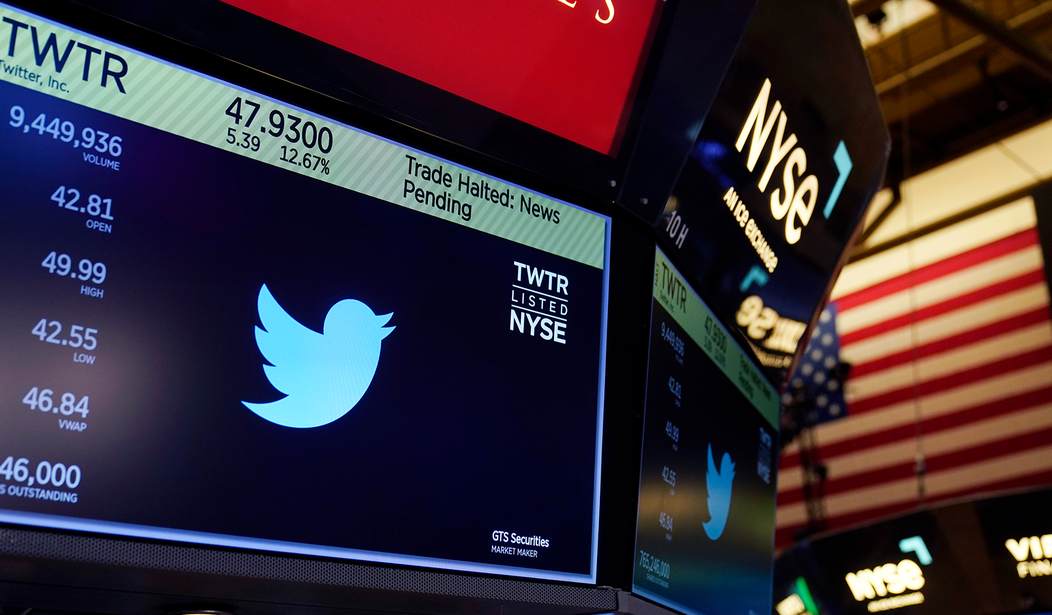The opinions expressed by contributors are their own and do not necessarily represent the views of RedState.com.
Here we go again.
You might remember how, back when Elon Musk finalized his purchase of Twitter, the authoritarian left went into full meltdown mode over the prospect of not having supremacy over the platform any longer. Democratic influencers and members of the chattering class wailed like drunken banshees about how horrible it would be for the platform to apply its terms of service consistently, without political bias.
They threw every rhetorical barrage against Musk in a hopeless attempt to discredit him. They accused him of continuing to allow child pornography on Twitter. Left-leaning media outlets claimed he was increasing bigotry and hate on the platform. Now, even the Federal Trade Commission (FTC) is harassing the new Twitter CEO.
None of these attacks have worked, so far. But it appears that at least one leftist media outlet is still trying, and it could be a sign that other propaganda outlets will join in the renewed effort to prove, once and for all, that “Tesla Man Bad.”
BBC News published a report on Tuesday in which it informed its audience that “[h]undreds of accounts that were recently allowed back on Twitter have been spreading abuse or misinformation,” according to an investigation conducted by the news outlet. “In exclusive research, BBC Monitoring analysed over 1,100 previously banned Twitter accounts that were reinstated under new owner Elon Musk,” the report continued.
The network supposedly “found evidence of problematic content posted on the platform in over a third” of the accounts that had been restored.
In November, Musk announced that Twitter would be granting an “amnesty” of sorts to people who had lost their accounts previously. This did not apply to all suspended accounts, but to most, including former President Donald Trump.
The company’s rules do not allow incitement to violence and attacks on people or groups of people based on race, sexual orientation, and gender. It also prohibits content that is meant to “dehumanize, degrade, or reinforce negative or harmful stereotypes.”
Of course, the platform also strictly disallows the dissemination of Child Sexual Abuse Material (CSAM), also known as child pornography.
BBC’s “investigation” included only accounts with over 10,000 followers that were reinstated between October 27, 2022, when Musk took over the company, to January 10, 2023. “To identify problematic content, we used a combination of keyword searches and manual analysis of dozens – and at times hundreds – of posts on each account in our dataset. Where possible, we also noted known reasons for previous suspensions,” the report explained.
So what did the intrepid reporters at BBC find?
For starters, their investigation found that some of the reinstated accounts have a “history of making misogynistic comments.” Their favorite example was online influencer Andrew Tate, who is facing rape and human trafficking charges in Romania. He is known for making crude and controversial comments about women, dating, relationships, and other topics.
Other users promoted misogyny, including one individual who said he knows a woman who is “fine” when he wants to physically assault her. Another posted a video depicting a rape.
The reporters also found that some of the accounts posted attacks against the LGBTQ community, noting that they saw tweets that referred to them as “sick humans,” “groomers,” and “paedophiles.”
Of course, without context, it is difficult to discern whether BBC’s folks were being honest or accurate in this assessment. These terms are typically used by people on the right to describe folks supporting the sexualization of children and the movement to trans kids. However, progressives have deceptively claimed that these terms are used only on people who identify as LGBTQ.
The report notes that there were also “two accounts with images depicting child sexual abuse,” but noted that these were drawings, not real-life pictures. After the researchers reported the accounts to Twitter, it suspended one of the accounts and removed a “problematic image” from another.
The authors of the report also took issue with the fact that “election deniers” were allowed back on the platform. They noted that “[o]ver a hundred accounts in our dataset spread false and misleading claims about elections and their outcome.”
Again, this is a claim that discerning folks should not take at face value. Progressives label anyone who questions the result of the 2020 presidential election as “false and misleading” regardless of what arguments they are making. Ironically enough, the report makes no mention of Democrats who questioned the validity of the 2016 election or the notion that Georgia gubernatorial candidate Stacey Abrams was unfairly cheated out of victory. This is possibly because the politically-motivated hacks that were in charge before Musk never applied these standards to those questioning Republican victories.
Of course, no report of this type would be complete without complaining about Twitter restoring the accounts of people who questioned the Democrat-approved narrative on COVID-19 and vaccines, right? “In November, Twitter stopped enforcing its Covid misinformation policy, prompting some of the notable spreaders of coronavirus myths and vaccine misinformation to come back,” the authors wrote.
The bottom line is that the BBC is once again attempting to malign Musk’s commitment to free speech by arguing that it allows people to be bigoted buffoons who dare to doubt election results and narratives regarding a pandemic. But even more telling is the fact that it only found that one-third of the accounts that were restored continued engaging in conduct that the BBC finds problematic. The other two-thirds were just fine, weren’t they?
But those who value free speech know that this is the risk you take when you allow people to freely express their ideas. People are going to say things that others don’t like – and on Twitter, it is easy to block and mute those you do not wish to hear from. What is also telling about this report is that it focused only on accounts with right-leaning views. It made no mention of progressives engaging in behavior the BBC did not like, which lets us know even further why it was necessary for Musk to take over the company.
These people do not care about bigotry, election denial, or even truth, for that matter. What they care about is the fact that they no longer have the edge when it comes to spreading ideas. This has always been the crux of the matter for the authoritarian left. Fortunately, it still seems that they won’t be able to do much about it.













